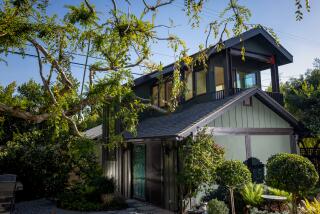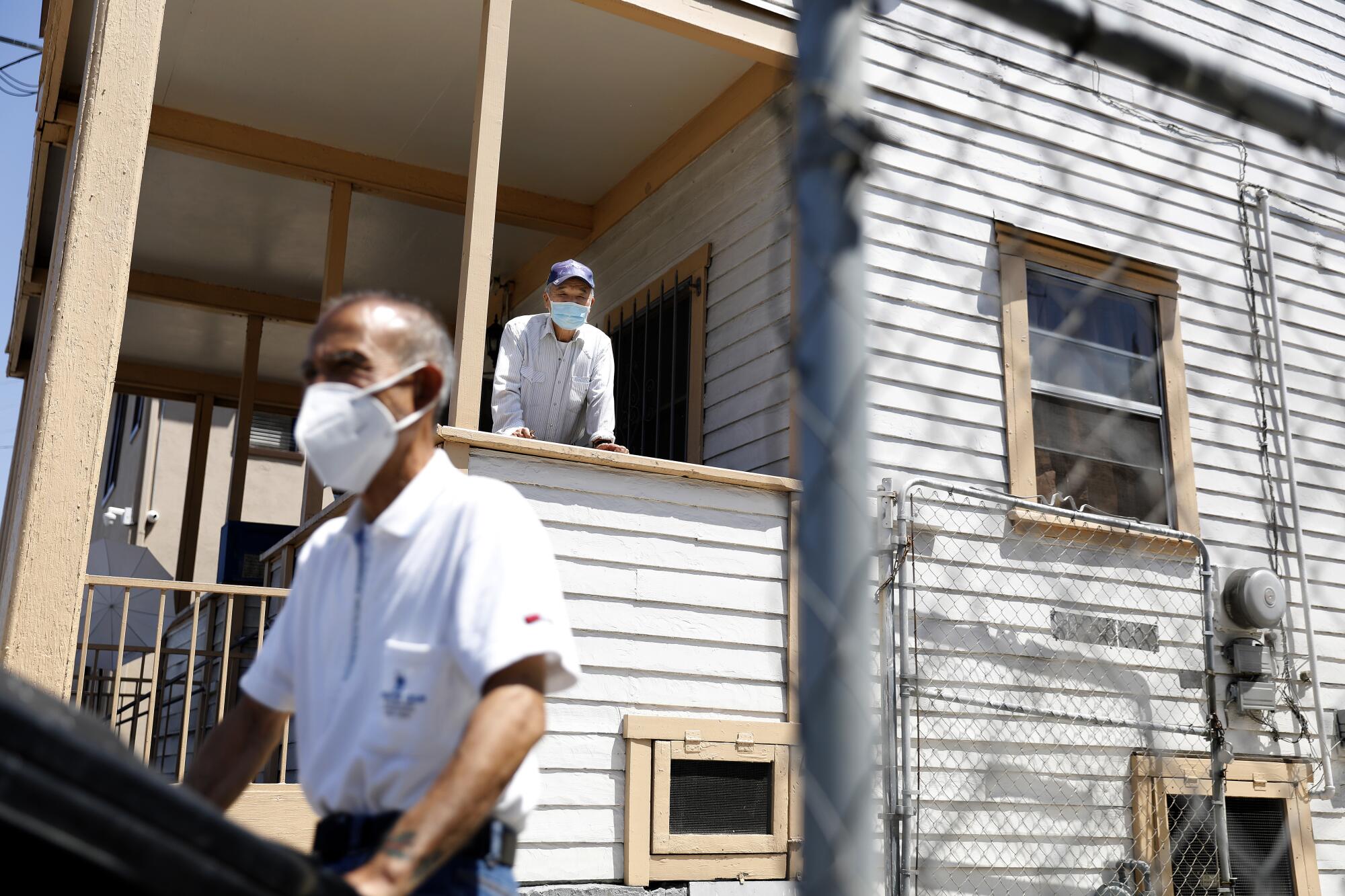
For nearly a century, Japanese immigrants have lived in the boardinghouse in East Hollywood.
In the house’s heyday, about 30 men left each day for jobs as gardeners or laborers, returning for communal meals during which they could converse in their native language.
Now, only seven are left, renting spartan rooms furnished with a single bed and a small desk as they worry about their future under a new owner in a gentrifying neighborhood, with Sqirl and other hipster eateries a couple of blocks away.
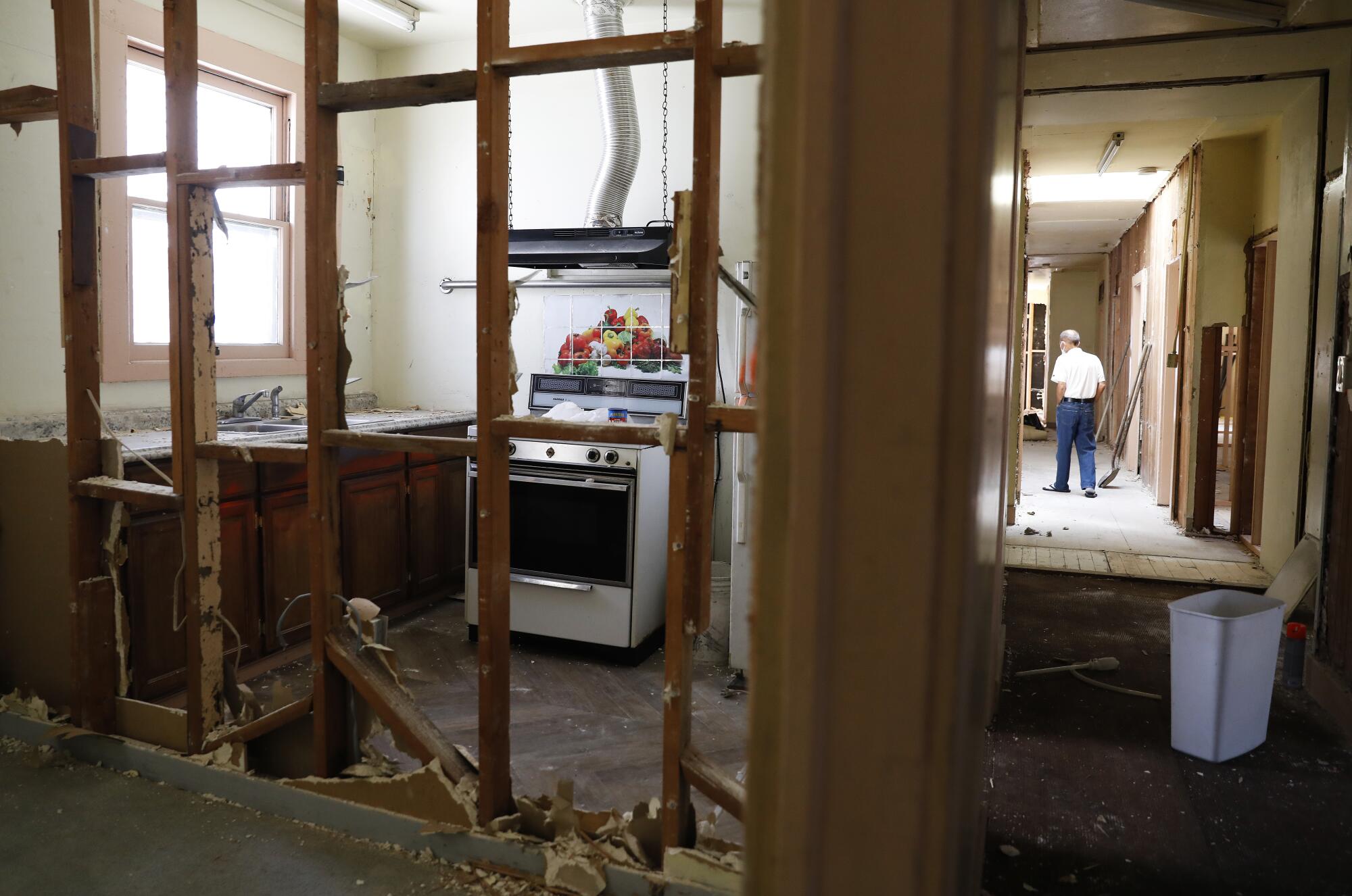
This month, the Los Angeles City Council designated the house at 564 N. Virgil Ave. a historic-cultural monument, which would stave off, but not eliminate, the possibility of demolition.
The owner is renovating the house, which is permitted under the new designation. He says he has offered rooms to the tenants in a neighboring building for the $400 to $500 a month they are paying.
But the men — mostly elderly bachelors with no children — still fear being forced to move out. They would have a hard time finding the deal they have now as longtime tenants with rent control.
“I have nowhere else to go,” said Sho Yoneha, 83, a retired dishwasher and gardener who has lived in the house for three decades, as he ate lunch with his housemates last year. “I’m full of anxiety and frustration every day with the reality that I have nothing.”
The two-story clapboard house with peeling cream-colored paint has a recessed front porch and a rectangular facade that would not look out of place in an old Western.
With 23 rooms and a handful of tenants, much of it is empty. It is the last Japanese boardinghouse still operating in the city, according to Lindsay Mulcahy, a member of the L.A. Tenants Union and a former consultant for Hollywood Heritage.
Four other former boardinghouses still stand but are no longer occupied by Japanese immigrants, said Mulcahy, who is advocating on behalf of the tenants.
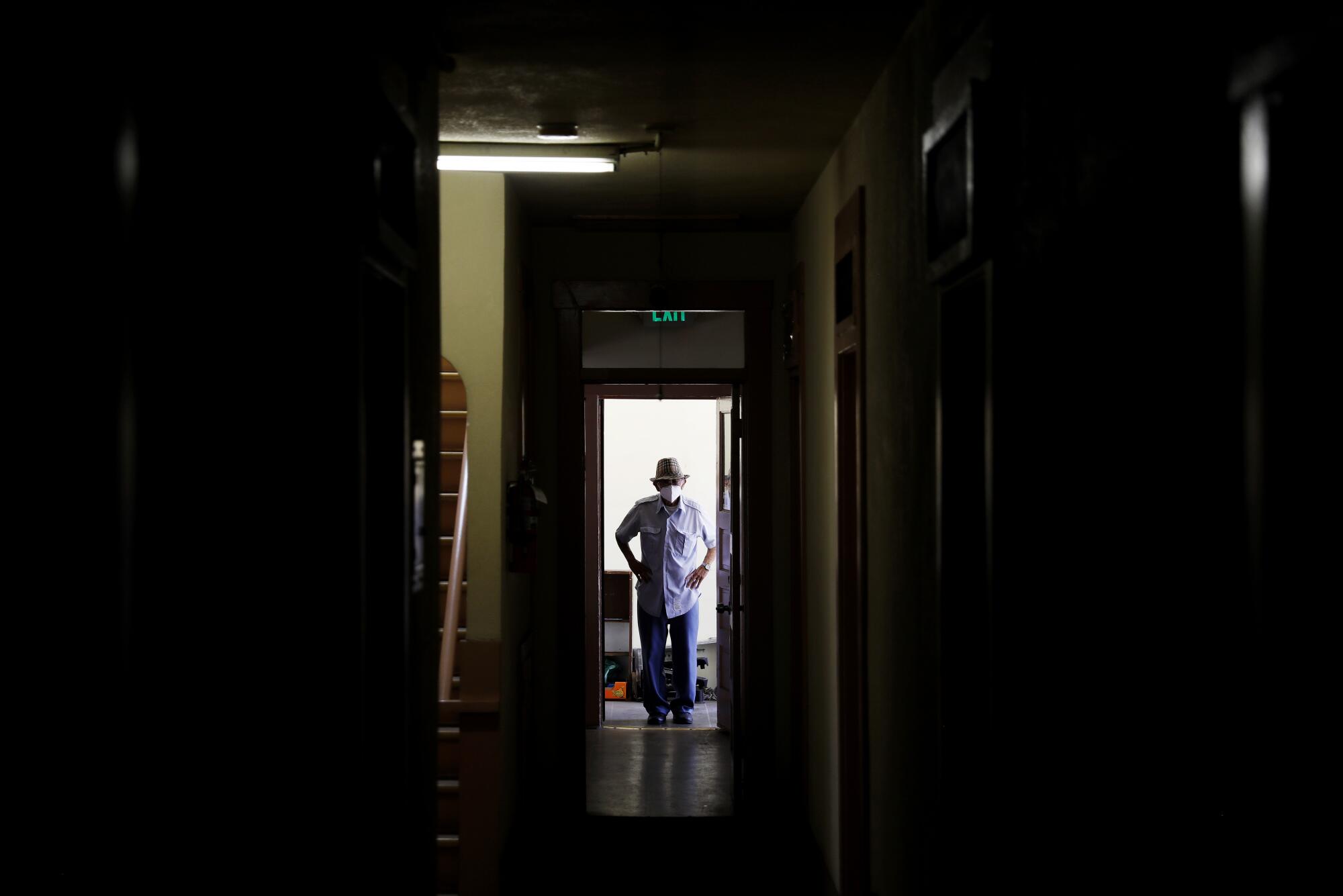
Developer Matt Mehdizadeh bought the Virgil Avenue boardinghouse in February 2021. The house was advertised as “a prime development opportunity for investors looking to capture strong rents in a highly increasing demand area.”
Mehdizadeh said he offered up to $20,000 to anyone who agreed to move out.
“I offered them what they wanted,” he said in a recent interview. “It’s what the tenants wanted that made sense.”
Mehdizadeh has removed most of the historic windows as part of a renovation that will allow him to rent each room for about $800 a month. This will create more affordable housing in a gentrifying neighborhood, he said.
He characterized his offer to provide rooms to the longtime tenants in a renovated building next door, for the rent they pay now, as generous.
“No landlord in the history of L.A. offered to move tenants ... in a brand-new unit without increasing their rent whatsoever, so who’s the good guy here, who’s the bad guy, I don’t know,” he said.
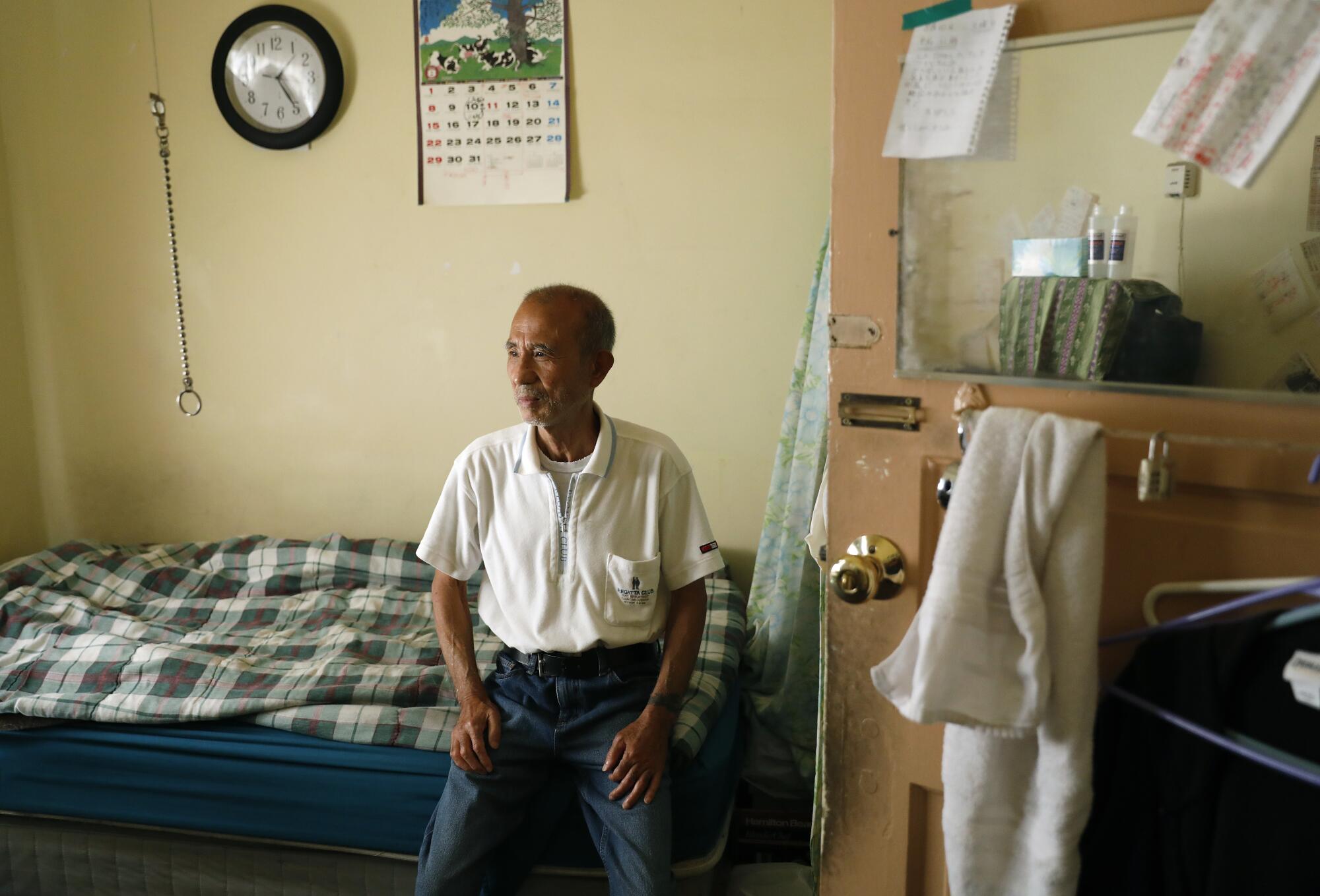
But the tenants are skeptical about the offer.
“Matt never explains what’s the bigger intent,” said Hidetoshi Shibao, 77, who came to California in the early 1970s and worked as a gardener and a tour bus driver. “What is his intention for this place?”
James Niimi, who has lived in the house since the early 1980s, finds it hard to trust Mehdizadeh.
Born in Hawaii, Niimi is one of the only tenants who speaks fluent English.
He came to the mainland in 1957 after graduating from high school, eking out a living doing odd jobs — selling magazine subscriptions, sending out junk mail, cutting meat.
When Niimi first moved in, he paid $90 a month. Now, as the longest-standing tenant, his rent is about $400.
“It’s a safe place to live for elders,” said Niimi, 83, who is retired. Mehdizadeh “offered a lot of people money. I told him: ‘You have to talk to my lawyer’ ... I don’t want to end up with the short end of the stick.”
The men didn’t come to California with much. All these decades later, they still don’t have much. Many are retired and live off Social Security.
Hideo Suetake arrived in the U.S. at age 26, intending to study for a year and go home. He ended up staying, cycling through various jobs, including cooking at a sushi and tempura bar.
He eventually lost touch with his family in Japan. Now in his 70s, he works as a hotel clerk in Little Tokyo.
His room on the first floor holds everything he owns — drawers full of clothes, a fan, cups and mugs piled on a small desk.
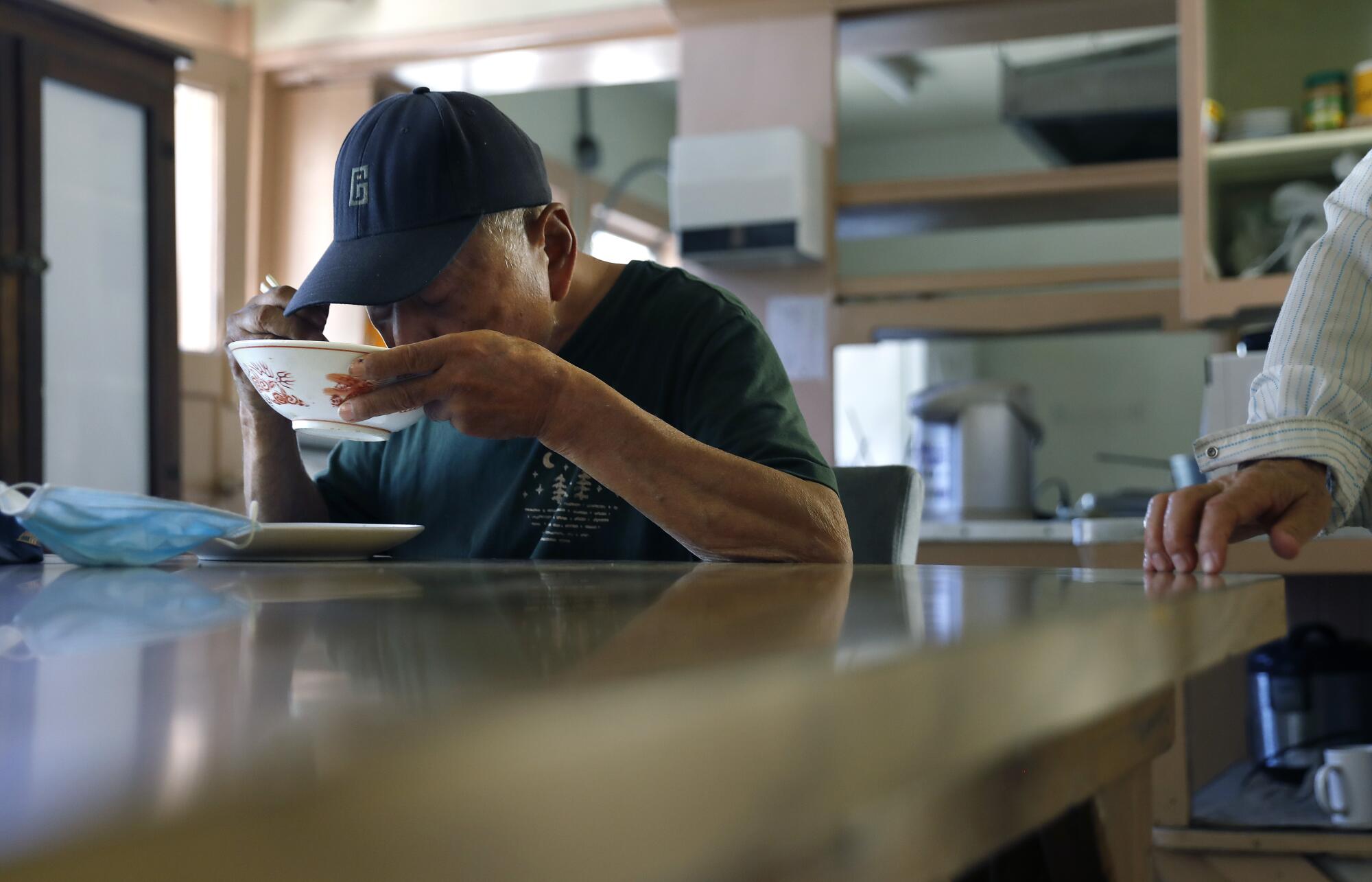
In the 1910s and 1920s, East Hollywood was a center of Japanese life.
Sukesaka and Tsuya Ozawa owned a farm stand and lived on Virgil. In 1924, they built the boardinghouse next to their home.
The Ozawas — primarily daughter-in-laws Shizuka and Doris — cooked three meals a day for the whole house. They organized community festivals and made the tenants, many of whom had no family in the U.S., feel at home, said Susan Ozawa, Sukesaka and Tsuya’s great-granddaughter.
The boardinghouse also served as an employment agency, since discrimination prevented many Japanese from getting jobs on their own.
During World War II, the Ozawas were among the more than 100,000 people of Japanese descent forced into incarceration camps by the U.S. government.
After two years at the Heart Mountain Relocation Center in Wyoming, the Ozawas returned to Virgil Avenue. They had entrusted their properties to a Presbyterian pastor, who paid the taxes for them. Unlike many Japanese Americans, they could rebuild their old lives.
In the years after the war, the boardinghouse was a reunification site and an anchor for the community.
It was a “testament to survival,” to “working hard and caring for each other,” Susan Ozawa said.
The Ozawas were active in the wider Japanese community, with Sukesaka Ozawa financing what is now known as the Hollywood Japanese Cultural Institute and supporting the Hollywood Judo Dojo program.
After the family sold the building in 1980, Japanese men continued to live there.
For a while, the subsequent owners were Japanese American. A member of the Ozawa family taught them how to cook Japanese dishes, Mulcahy said.
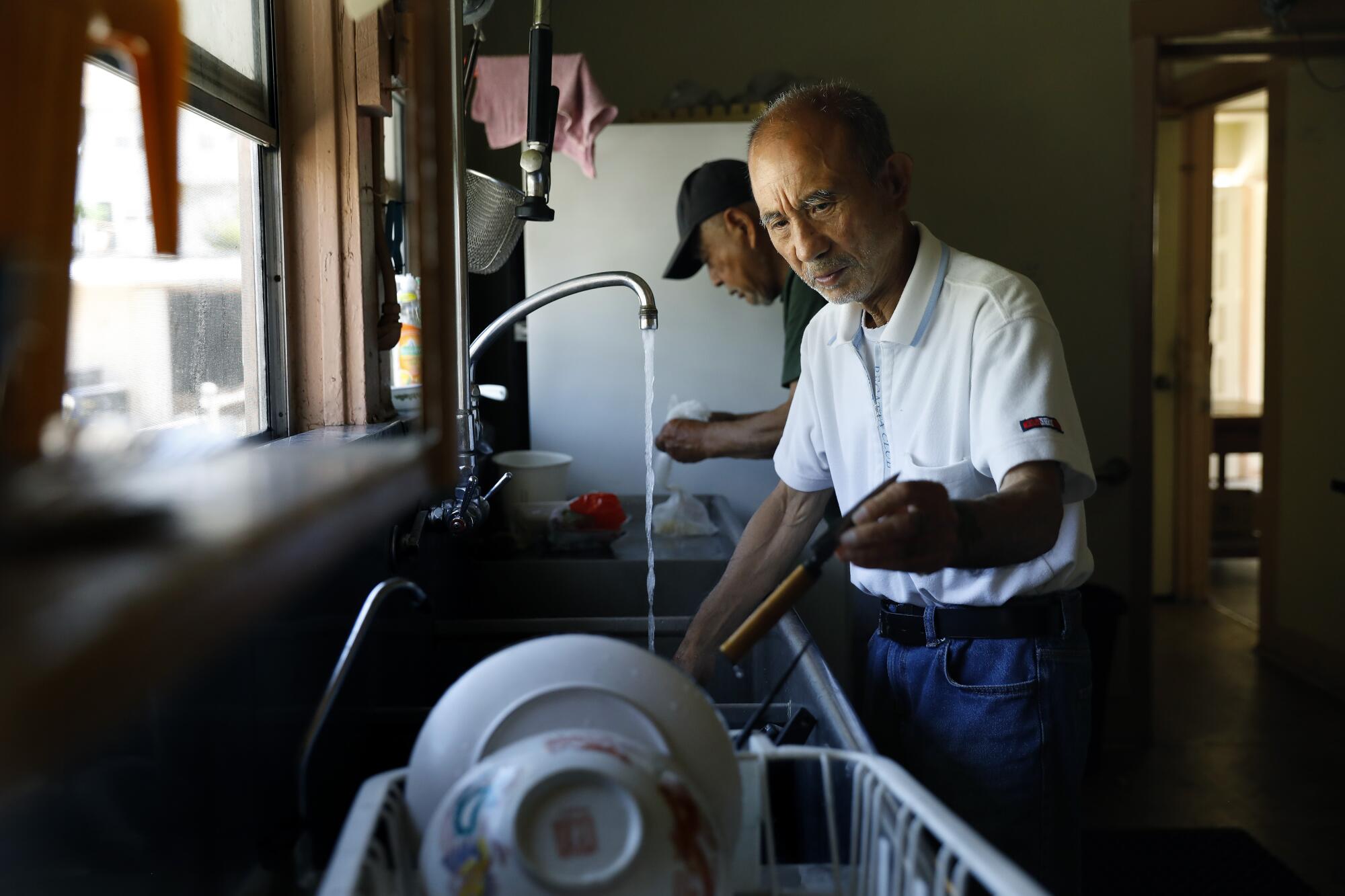
Now, the days when the landlord put hot meals on the table are long past.
Most other Japanese have long ago left East Hollywood. Even in Little Tokyo, Gardena and Sawtelle, there are fewer immigrants whose first language is Japanese.
Every Saturday, Shibao goes to the Islamic Center of Southern California to pick up free fresh produce, fish and meat and canned goods.
The housemates often eat meals together. They share a couple of communal bathrooms, as well as a kitchen with metal racks filled with soy sauce, cane sugar, canned ground pork, chicken noodle soup and copies of the Japan Times.
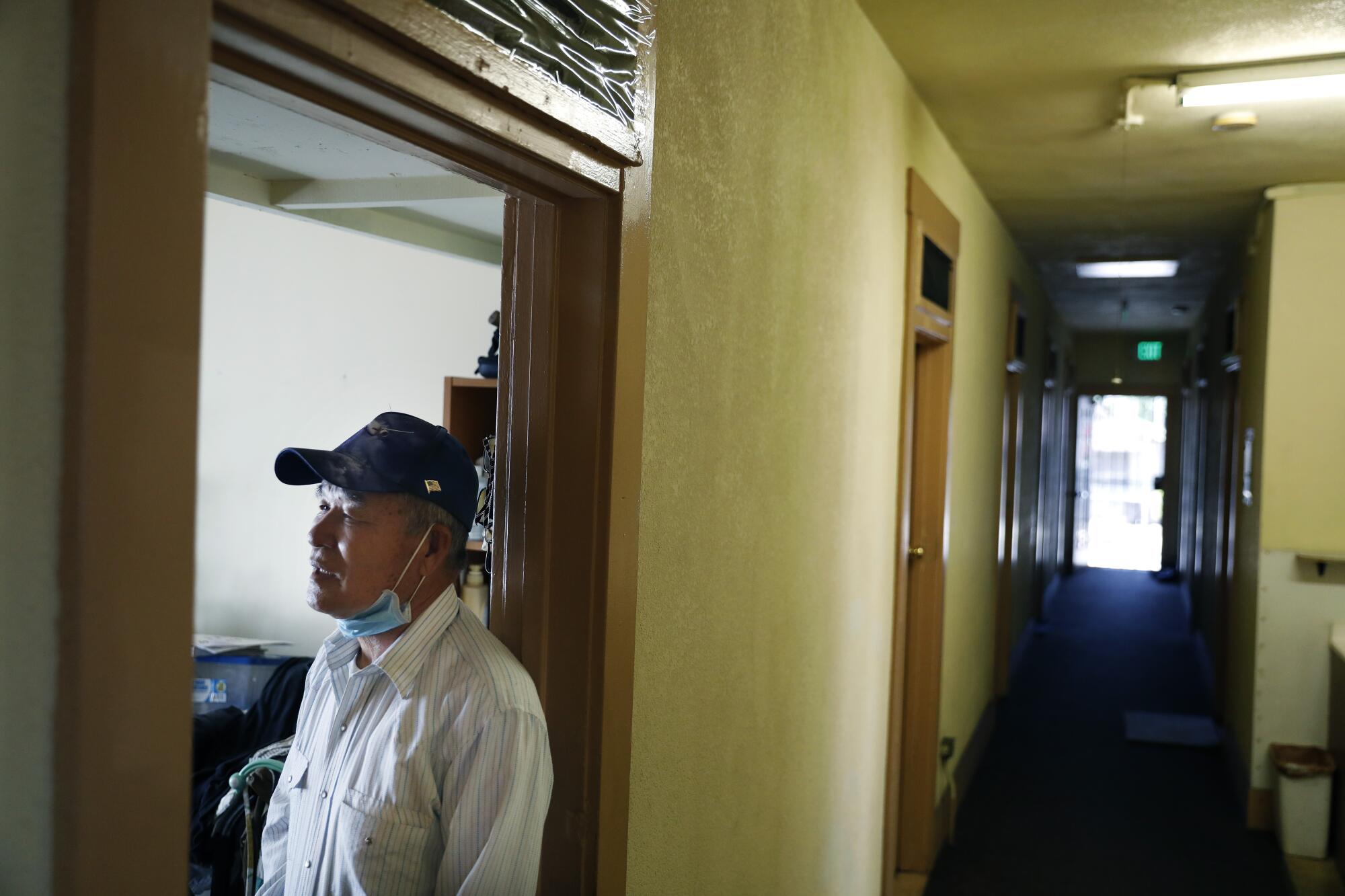
This winter, the tenants were left without heat. They kept warm with blankets and jackets brought by the L.A. Tenants Union. Last month, the stove broke down, and community members brought food for them.
Mehdizadeh said he fixed the heat soon after he was informed of the problem and is planning to replace the stove.
Meanwhile, with the help of community organizations that found pro bono lawyers and held storytelling events to raise awareness, the application for historic-cultural designation wound its way through city agencies.
The designation’s approval by the City Council on June 10 allows city officials to delay demolition for up to a year while looking for ways to preserve the building — amounting to a temporary reprieve.
Despite the grueling, precarious lives they have led, the men say this country has treated them well.
“Some people bad-mouth America, but in reality, it’s a good country,” said Yoneha, who came to the U.S. from Okinawa on a whim 50 years ago. “When it comes to community service, America is No. 1.”
More to Read
Start your day right
Sign up for Essential California for news, features and recommendations from the L.A. Times and beyond in your inbox six days a week.
You may occasionally receive promotional content from the Los Angeles Times.
